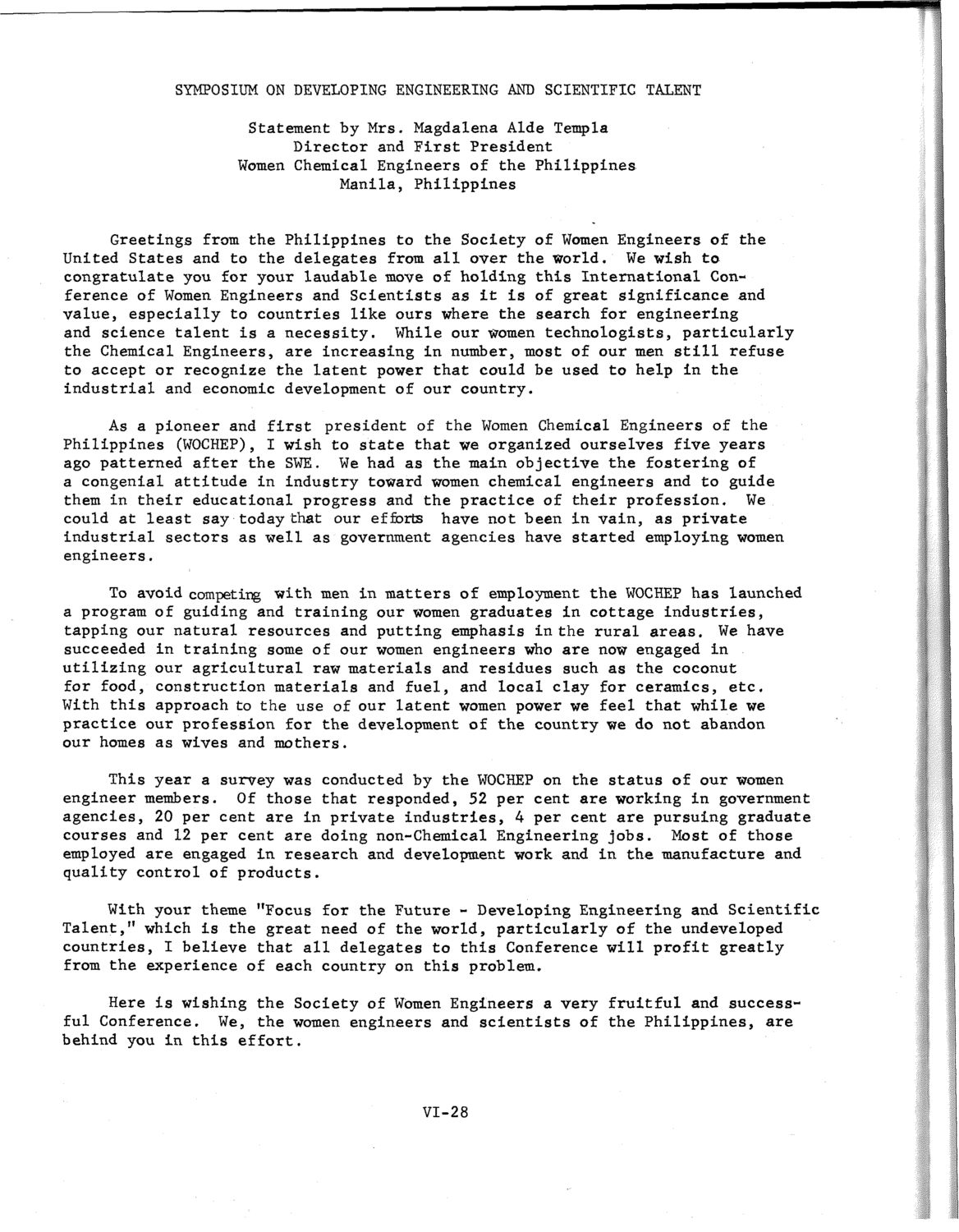| |
| |
Caption: SWE - Proceedings of the First International Conference of Women Engineers and Scientists
This is a reduced-resolution page image for fast online browsing.

EXTRACTED TEXT FROM PAGE:
SYMPOSIUM ON DEVELOPING ENGINEERING AND SCIENTIFIC TALENT Statement by Mrs. Magdalena Aide Templa Director and First President Women Chemical Engineers of the Philippines Manila, Philippines Greetings from the Philippines to the Society of Women Engineers of the United States and to the delegates from all over the world. We wish to congratulate you for your laudable move of holding this International Conference of Women Engineers and Scientists as it is of great significance and value, especially to countries like ours where the search for engineering and science talent is a necessity. While our women technologists, particularly the Chemical Engineers, are increasing in number, most of our men still refuse to accept or recognize the latent power that could be used to help in the industrial and economic development of our country. As a pioneer and first president of the Women Chemical Engineers of the Philippines (WOCHEP), I wish to state that we organized ourselves five years ago patterned after the SWE. We had as the main objective the fostering of a congenial attitude in industry toward women chemical engineers and to guide them in their educational progress and the practice of their profession. We could at least say today that our efforts have not been in vain, as private industrial sectors as well as government agencies have started employing women engineers. To avoid competing with men in matters of employment the WOCHEP has launched a program of guiding and training our women graduates in cottage industries, tapping our natural resources and putting emphasis in the rural areas. We have succeeded in training some of our women engineers who are now engaged in utilizing our agricultural raw materials and residues such as the coconut for food, construction materials and fuel, and local clay for ceramics, etc. With this approach to the use of our latent women power we feel that while we practice our profession for the development of the country we do not abandon our homes as wives and mothers. This year a survey was conducted by the WOCHEP on the status of our women engineer members. Of those that responded, 52 per cent are working in government agencies, 20 per cent are in private industries, 4 per cent are pursuing graduate courses and 12 per cent are doing non-Chemical Engineering jobs. Most of those employed are engaged in research and development work and in the manufacture and quality control of products. With your theme "Focus for the Future - Developing Engineering and Scientific Talent," which is the great need of the world, particularly of the undeveloped countries, I believe that all delegates to this Conference will profit greatly from the experience of each country on this problem. Here is wishing the Society of Women Engineers a very fruitful and successful Conference. We, the women engineers and scientists of the Philippines, are behind you in this effort. VI-28
| |